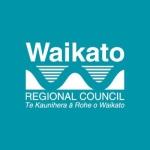Thousands of cigarette butts litter Waikato beaches
Waikato beaches are being treated like giant ashtrays.
A recent report to Environment Waikato’s environment committee showed school groups removed 2414 cigarette butts while cleaning up 11 Coromandel and west coast beaches earlier this year.
The clean-ups, coordinated by Environment Waikato, were held during Seaweek, from March 2-9.
The school groups also removed 2121 plastic bags, 1574 glass bottles, 342 cans and 689 metres of fishing line or rope from beaches, along with metal, hard plastic, rubber and medical waste.
“It’s no wonder Environment Waikato is getting feedback that a lot of people are frustrated with the amount of litter being found on beaches,” environment committee chair Jane Hennebry said.
“As well as ruining people’s enjoyment of coastal areas, litter can have devastating impacts on marine wildlife. Plastic bags, for example, can kill dolphins when they are mistaken for jellyfish and eaten.”
Cr Hennebry said not all the cigarette butts would have come from sunbathers.
“A lot of them would have been thrown down storm water drains, which run straight into rivers and into the ocean. One of the aims of Seaweek is to make people aware that what they do on the land can have serious impacts on coastal environments. A lolly wrapper discarded on an urban street can end up polluting one of our beautiful beaches.”
Seaweek is an annual event in New Zealand that aims to raise awareness of the coast and ocean and encourage all New Zealanders to keep beaches and marine areas healthy.
Environment Waikato coordinated Seaweek activities in the Waikato region for the first time this year.
Environment Waikato community education facilitator Sam Stephens told the environment committee it had been highly worthwhile from the council’s point of view and had created a “real buzz” amongst the more than 800 students, teachers and parents from the 11 schools that took part.
Rubbish collected by the schools groups was taken back to school for waste audits, where it was weighed and recorded.
Students also learnt about the importance of keeping off sand dunes to protect fragile plants and discussed local conservation issues, such as threats to the endangered Maui’s dolphin.
“One school group found an abandoned fishing net at Port Waikato and saw how dangerous it is to have something like this floating around the ocean,” Mr Stephens said.
Mr Stephens hopes Environment Waikato will be involved in Seaweek on an ongoing basis. He is planning to use data from the waste audits to monitor trends and develop future educational campaigns.
Whangamata Area School, Tairua School, Mercury Bay Area School, Coromandel Area School, Tapa School, Te Puru School, Waiuku Primary School, Valley School, Raglan Area School, Fairfield Intermediate and Te Mata School took part in the beach clean-ups this year.
Coromandel beach clean-ups were carried out in conjunction with Thames-Coromandel District council.
